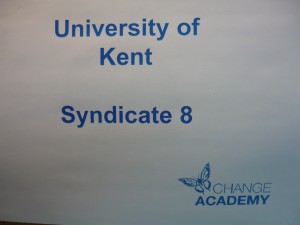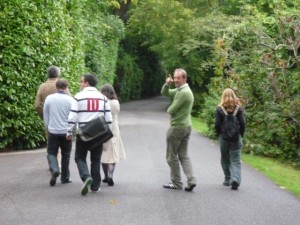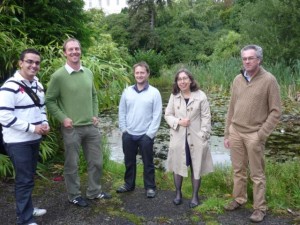Cindy Vallance
I spoke in my last posting about the values we initially decided were important within the Change Academy initiative.
Just to recap, these are: Involving students, Openness, Collaboration, Innovation, Listening, Equality, Partnering, Inspiration, Fun, Respect, Trust. I asked the question “Who wouldn’t want to work and study with people who are trying their best to demonstrate these qualities, especially in a time of increasing change, uncertainty, unrest and pressure?”
Coincidentally, I happened to read, just one day after my posting, this statement about values:
“Statistically speaking, (in creating a list of ‘values’), you have just created a document that will be the source of one of the top five greatest reasons for contempt, de-motivation, disloyalty and turnover in your organisation. All of this comes from the discrepancy between the values on the wall and the values on the ground. Organisations list values. But they don’t live them. And people hate this. They really, really hate it.” – Kline, Nancy (2009), More Time To Think, p. 271, Fisher King Publishing, England.
The reality, of course, is that organisations don’t live values – it is the people in the organisation that can and do. But what values?
When we had our initial conversations about the Change Academy initiative, we discussed the fact that the vision of Change Academy is to help teams of staff and students develop their knowledge, capacity and enthusiasm for achieving complex institutional change to benefit the student learning experience.
How can we do this within our own Change Academy initiative? We can do this by living the values we have said we support and by encouraging others to do the same. We can do this by considering the impact of our words and our actions on others. We can ask ourselves: Do we regularly build others up or do we tear them down? Do we walk away from meetings inspired or dejected? What are we doing to contribute to the success or failure of the meeting? Do we use our interactions as an opportunity to positively enhance our relationships with students and staff?
As part of the Change Academy project, I recently had the opportunity to participate in a Thinking Environment Master Class through the Leadership Foundation for Higher Education. The goal of the session was to demonstrate how valuing the contribution of each person can drive team effectiveness, improve relationships and result in shorter, smarter meetings. I’ll share some of the principles and processes from the session in future blogs.
Sounds too good to be true? Come back with an open mind and see what you think.






